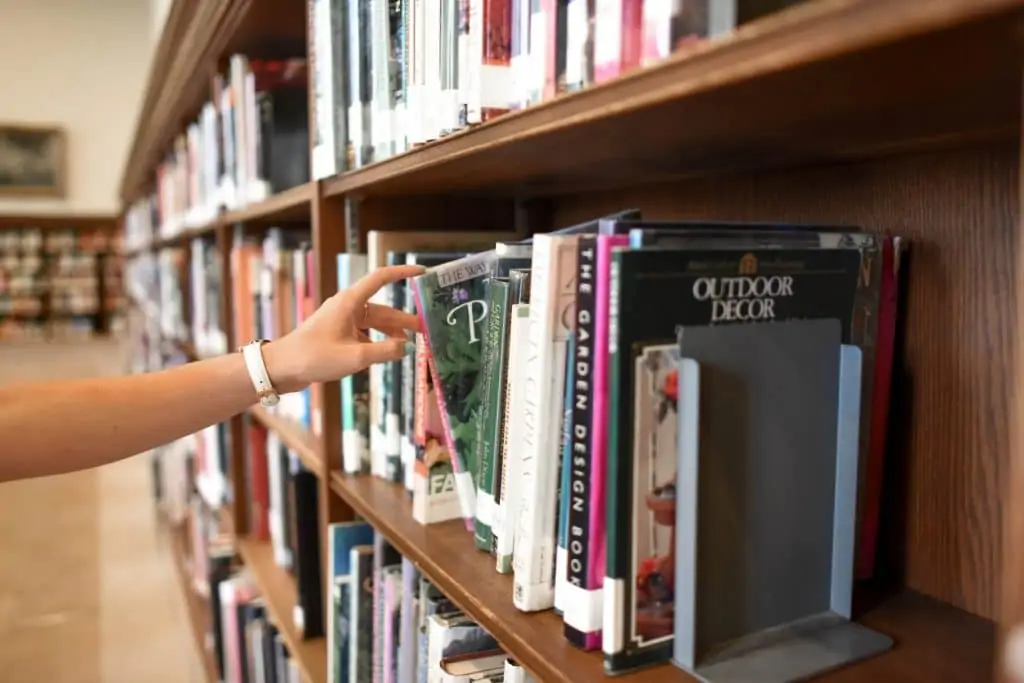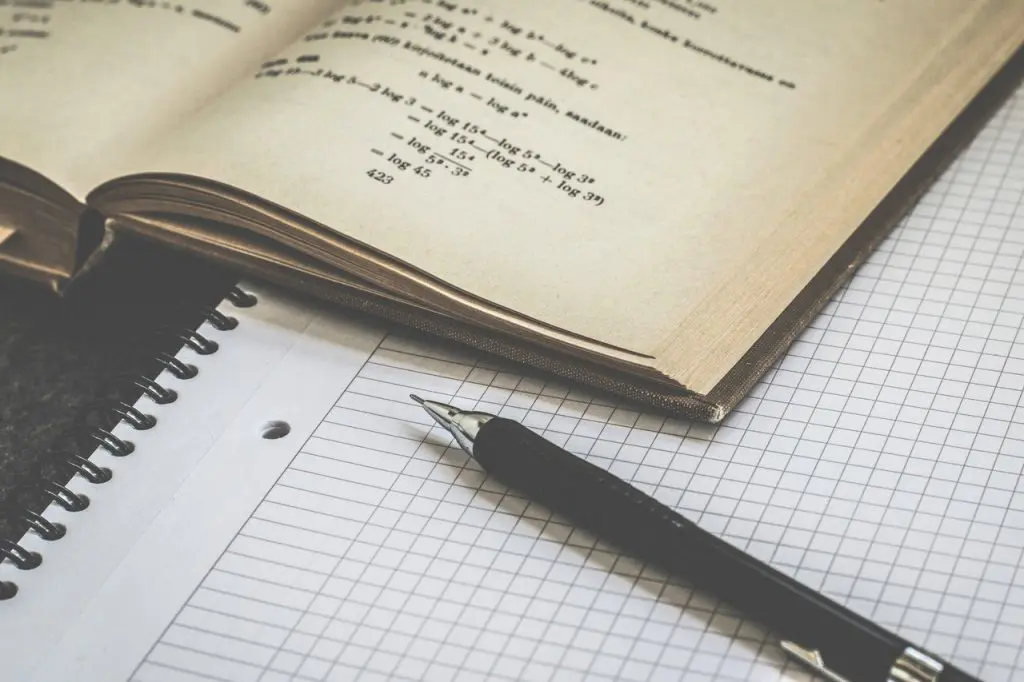If you’re looking for a list of IB classes, you’ve come to the right place.
A globally recognized International Baccalaureate (IB) diploma can increase your chances of getting into a top college! Primarily aimed for high school students, the IB Diploma Program offers you with an opportunity to broaden your educational experience, while also challenging you to apply knowledge and skills in creative ways. It also shows college admissions your learning potential by taking on demanding coursework.
But, where do you start?
This article is an ultimate list of IB classes that are available for you to take! We are going to provide you with an overview of the subject groups in IB programs, types of classes offered by each subject group, and tips on how to choose your IB classes. By the end of this article, you should know all the classes offered for a variety IB subjects and know which ones are the best for you to take.
What are the Six Subject Groups of the IB Program?
As an overview, the IB program is a globally recognized, nonprofit education program designed to provide students with education that fosters their personal and academic development for career and college preparation. The program is designed for students aged 16-19 years old across the country to obtain an IB diploma certificate that cultivates their knowledge and skills for globalized education.
Over the course of two years in the IB program, students will typically study six subject groups that are building on three core elements:
1. Theory of Knowledge
Theory of Knowledge is assessed using an oral presentation and a 1,600-word reflection essay. These are typically due by a certain program deadline, so make sure to check in with your institution regarding those dates.
You can find samples of essays titles here.
2. Extended essay
The extended essay is completed at the end of the program and is mandatory for the IB diploma certificate. The essay is an independent project that is comprised of a 4,000 word paper. The project is graded on a scale of 0-34.
Here is a guide with examples, topics and ideas for the IB extended essay.
3. Creativity, activity, service (CAS)
For the element on creativity, activity, and service, students must demonstrate initiative, leadership skills, collaboration efforts, and problem-solving techniques. This component is not formally assessed, but expected of students to engage in voluntary experiences in service, arts, or physical activity.
If you’re not necessarily sure what this type of activity would look like, here is a community blog describing the variety of experiences that fall under the CAS requirement for the IB diploma.
Overall, these are the essential elements for the IB diploma requirements. Generally, students are required to engage in ongoing reflections about what they are learning, lead an independent piece of research with a paper, and complete an additional project related to “creativity, activity, and service.”
In addition to these core elements, a student must take at least one course from the six subject groups as part of the IB diploma requirements.
Now, what are the six subject groups of the IB diploma requirements?
Let’s walk through these in more detail below.
Studies in language and literature
Studies in language and literature offer classes to appreciate languages in a variety of contexts, including written literature, language and literature, and literature and performance. Students will typically study a language that they are familiar with; but you have the opportunity to choose from over 50 languages.
The goals of these courses are to have students develop critical thinking skills on texts, language, and literacy and to develop strong forms of written and oral expression. If you take two studies in language and literature in different languages, you can also obtain a bilingual diploma, which will useful for those pursuing international work or globalized research.
Language acquisition
Language acquisition focuses on the application of language for different purposes to promote an understanding of another culture. For example, students may select Spanish, a language they have little to no experience with, to foster their abilities to communicate with people from a new culture in Spain, Latin America, or other countries.
If you are interested in strengthening your language skills for the purpose of connecting with another culture outside of your own, this will make for a great learning opportunity.
Individuals and societies
Individuals and societies are designed for students to develop a critical appreciation for the human experience, behavior, social and cultural institutions, and the dynamic interplay of the surrounding environments individuals inhabit.
You are typically required to choose one subject from a selection of business management, economics, geography, global politics, history, information technology in a global society, philosophy, psychology, social and cultural anthropology, or world religions. Check this guide on how to choose IB subjects.
Sciences
You are required to choose at least one subject group from the sciences. This subject group is designed to have students explore concepts, theories, and techniques to develop their understanding of the scientific method. You can select from biology, computer science, chemistry, design technology, physics, or sports, exercise and health exercise.
Mathematics
Mathematics courses include the course and assessment in either analysis and approaches or applications and interpretation. These courses are designed to have students develop mathematical knowledge, concepts, principles and develop logical reasoning and critical thinking.
Arts
The arts offer an alternative to studying additional sciences with a focus on creativity in practical research. The arts are designed to strengthen students’ skills in adapting to different cultural contexts by exploring the diversity of arts across centuries, places, and cultures. Students are also required to express themselves through these topics with competence.
How Many IB Classes are There?
Before we leave the topic of subject groups, we think it’s important to note that there are options to choose to take classes at standard level or high level. Importantly, IB diploma requirements include at least three subjects taken at higher level. Availability may vary by program, but you have even more opportunities to push your educational goals.
Now that we know how many IB subject groups exist; how many classes can you choose from?
You actually have several classes to choose from each subject group, a total of about 56 classes! Sometimes, you can even take these at different levels and online, but not always! If accessibility is a concern for you, make sure to check in with the program to see what is available to you first.
In the next section, we will walk you through our IB classes list and describe what you can expect from taking this class and how it may apply to your own skillset. While you do not have to take all these classes, you should remember that one course counts as an IB diploma requirement to receive your certificate. Choose wisely!
What Classes are Offered for IB Language and Literature?
Do you have a love and appreciate for languages? IB language and literature offers three courses to enrich this area of knowledge. Classes include:
Language A: literature
This classes focuses on an overview and introduction to the analysis of literary texts. You have 55 languages to choose from. You are required to complete 13 works at HL and 9 works at SL.
Language A: language and literature
Here, you will study a range of non-literary texts, including media forms, their functions and literature; you also develop techniques for critical analysis of communicating non-texts. There are 17 languages available to choose from. Students are required to complete 6 works at HL and 4 works at SL.
Literature and performance
Literature and performance focus on the relationship between theatre and literature. You can plan on studying the practical and symbolic components of performance with critical analysis and readings. Classes are offered in English, but by special request you may access other languages, such as Spanish and French.
What Classes are Offered for IB Language Acquisition?
IB language acquisition is great for those who would like to understand other cultures outside of their own. There are 17 languages available to choose from, but you only need one for the IB diploma requirements! For language acquisition, students may select from modern languages, classical languages, or others that may be available online.
Classes offered include:
Modern languages
- Language ab initio (beginners)
- Language b (intermediate)
Classical languages
- Latin
- Classical Greek
Other courses that are available to you online
- Spanish ab initio
- Spanish B SL
- Mandarin ab initio
- French ab initio
What Classes are Offered for IB Individuals and Societies?
IB individuals and societies allows you to explore the nature of human behavior and experience. One class is required for the IB diploma certificate. Classes offered include:
- World religions
- Social and cultural anthropology
- Economics
- Global politics
- History
- Business management
- Geography
- Information technology in a global society
- Psychology
- Philosophy
What Classes are Offered for IB Sciences?
Classes offered for IB Sciences include:
- Biology
- Computer Science
- Chemistry
- Design Technology
- Physics
- Sports, exercise and health science
You also have the option to complete a course in interdisciplinary subjects.
- Environmental systems and societies
This course has students explore ethical implications of science to prepare you to explore scientific solutions to global issues. The course actually meets group 3 and group 4 requirements
What Classes are Offered for IB Mathematics?
There are six classes offered for IB mathematics. You are only required to take one to meet IB diploma requirements. These classes are available to you at standard level (SL) or higher level (HL) and may even be available online.
Classes include:
- Mathematical studies (SL)
- Mathematics (SL)
- Mathematics (HL)
- Further mathematics (HL)
- Mathematics: analysis and procedures (SL or HL)
- Mathematics: applications and interpretations (SL or HL)
What Classes are Offered for IB Arts?
IB Arts offer five classes that are available to students at standard level or higher level. These classes include:
- Dance
- Music
- Film
- Theatre
- Visual Arts
How to Choose Your IB Classes
There is such a great variety of IB classes to choose from; but choosing IB classes can be stressful! You want to make sure you take a class that broadens your knowledge and skillset, while also making it feasible to accomplish for your career goals. You also want to make sure that you are meeting the IB diploma requirements, without compromising your time and commitment.
We want to leave you with some simple tips on how to choose IB subjects.
Identify your current and potential interests.
What do you care about? What gets you out of bed in the morning? Ok, what do you wish you could get out of the bed in the morning for?
You want to consider topics that you enjoy based on your personal experiences. Think about what you’ve felt really passionate about before and how you could broaden your understanding of that skill or topic in these classes.
Speak with your mentors and teachers.
Getting some guidance on how to choose the right IB classes can be a good start!
You should start with people who you have worked with or who are familiar with your skillset. A teacher might have great feedback on where you have excelled beforehand through your writing and participation. A mentor, if you have one, should know you very well and understand your goals for career and college.
Start asking others on how your work may fit well with certain classes to cultivate your existing strengths.
Be strategic with your essay project.
As we discussed earlier, IB programs typically require an essay for the IB diploma certificate. Consider taking classes that will help expand this essay to a more comprehensive paper. For instance, it might make sense to take classes that broaden your knowledge about various components of a specific topic. This way, you can write about the various elements you’ve learned within that topic.
What’s the Difference Between SL and HL IB Classes?
We mentioned how IB classes can be offered at standard level or higher level; but I’m sure you’re left wondering,
Well, what’s the difference?
The difference is mainly in the number of study hours required for each type of class and the structure of the curriculum.
SL courses
- Must have a minimum of 150 hours
- Single curriculum without expansion in a topic of interest
- HL courses
- Must have a minimum of 240 hours
- Slightly different curriculum that allows students to explore topics of interest in more depth
- Students consider HL courses as more work than SL
Generally, both SL and HL courses require two years to complete. Both SL and HL courses comprise of the same core elements (theory of knowledge; extended essay; and creativity, activity, service) and assessments.
If you choose to try out an HL course, but it seems overwhelming, it is possible to take HL courses and test at SL!
3 Example Subject Choices for Choosing IB Classes
Now that we’ve discussed the difference between SL and HL, along with the requirements needed from each for the IB diploma certificate, you might be feeling confused. Maybe you’re confused as to what your curriculum would actually look like.
To ease that confusion, we want to provide 3 examples of subject choices that can be selected by students. This will not only illustrate your process for choosing IB classes but will highlight the requirements you will need based on the IB criteria.
Please note that we’ve ordered these by subject group; so, group 1 (language and literature) courses will be selected first; then group 2 (language acquisition) courses selected after.
You’ll also note that we included a minimum of three higher level courses. These can be for any group, but the IB diploma requirements ask you to complete at least 3. You can always take more if you choose to, as well.
Example 1
Group 1: SL Spanish A: Language & Literature
Group 2: SL Mandarin ab initio
Group 3: SL Psychology
Group 4: HL Computer Science
Group 5: HL Mathematics
Group 6: HL Film
Example 2
Group 1: HL English Literature & Performance
Group 2: HL Classical Languages
Group 3: HL History
Group 4: SL Chemistry
Group 5: SL Mathematics
Group 6: SL Theatre
Example 3
Group 1: HL French: Literature and Performance
Group 2: SL French B
Group 3: SL Business Management
Group 4: HL Global Politics
Group 5: HL Further Mathematics
Group 6: HL Visual Arts
Wrapping Things Up: How to Use this IB Classes List
IB programs can increase the likelihood of getting into the top universities in the country! Don’t lose sight of taking advantage of those opportunities that can cultivate your knowledge and skills by challenging your intellect and understanding of diverse subjects, cultures, and contexts. The main takeaway is to select courses that promote your personal interests, passions and career goals.
At this point, you’ve learned about what IB programs offer, the specifications for the IB diploma requirements, and tips on how to select classes to meet those requirements. You should not have any other reservations moving forward with this commitment that will certainly reap its benefits for your learning in higher education.
Looking for more high school study tips? We’ve got a ton more free comprehensive guides here.
You may also find the following IB related articles interesting:
























